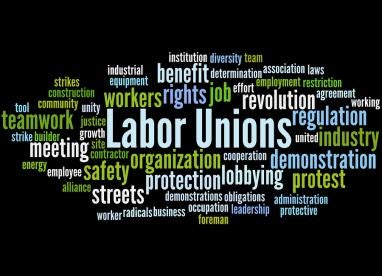The New York City Temporary Schedule Change Law (“Law”), which became effective on July 18, 2018, raises new issues that employers with union represented employees will need to address as their existing collective bargaining agreements (“CBA”) come up for renewal.
The Law allows most New York City employees up to two temporary schedule changes (or permission to take unpaid time off) per calendar year when such changes are needed due to a “personal event.” The Law also prohibits retaliation against workers who request temporary schedule changes. Additional detailed information concerning the Law and employers’ obligations can be found in our August 2, 2018 Client Advisory.
What Does the Law Mean for Employers with Union-Represented Employees?
The Law Applies to Employees Covered by a CBA
The Law, as written, applies to employees represented by a union and covered by a CBA. However, the Law contains a qualified exemption for employees covered by a CBA, which specifies that the Law does not apply to any employee who:
[i]s covered by a valid collective bargaining agreement if such agreement waives the provisions of this subchapter and addresses temporary changes to work schedules[.]
The text of the Law also addresses, in very general terms, the question of whether the Law is preempted by the National Labor Relations Act when it comes to interpreting a CBA for purposes of determining whether it contains a “waiver” of the applicable provisions of the Law or addresses changes to work schedules. That provision states that the Law does not:
[p]reempt, limit or otherwise affect the applicability of any provisions of any other law, regulation, requirement, policy or standard, other than a collective bargaining agreement, that provides comparable or superior benefits for employees to those required herein.
What Does This Mean to Employers Whose Employees Are Represented by a Union?
Employers will want to negotiate for express waiver language as well as language stating that the employer and the union agree that their CBA provides employees with scheduling change rights (as well as sick and safety time rights) that are comparable or superior to those mandated by the Law and the City’s Earned Safe and Sick Time Act (“ESSTA”).
While the quoted language from the Law may seem confusing, it appears that the City Council and the New York City Department of Consumer Affairs, Office of Labor & Policy Standards (“DCA”), are taking an approach similar to that followed under ESSTA. ESSTA provided for an exemption from compliance with that statute in cases where (a) employees are covered by a CBA, (b) the CBA contains an “express waiver” of ESSTA’s paid safe and sick time requirements, and (c) the paid safe and sick time benefits under the CBA are substantially comparable to those mandated by ESSTA.[1]
Significantly, in the case of ESSTA, the text of the statute only calls for a waiver and comparable benefits—the requirement that the waiver be an “express waiver” is one that was created by the DCA in its administration of ESSTA. It is foreseeable that the DCA will follow the same approach in its administration and enforcement of the Law. To date, in its enforcement of ESSTA, the DCA has demonstrated an unwillingness to defer to the agreement of an employer and its employees’ bargaining representative or acknowledge that the sick leave or paid time off under a CBA is comparable or superior to such leave or time off under ESSTA.
Accordingly, employers that employ union-represented employees will need to ensure that, as they renegotiate their CBAs and/or negotiate first contracts, the CBAs contain clear and unequivocal language confirming that the employer and the union have agreed to “expressly waive” the provisions of the Law and the provisions of the CBA concerning taking and scheduling time off and temporary schedule changes provide employees with benefits that are “comparable or superior” to those mandated by the Law.
What Happens with CBAs That Were Negotiated Before the Law Took Effect?
While the Law is, in most instances, effective as of July 18, 2018, the 180th day after its enactment, this is not the case for employees covered by a CBA that was in effect on that date. The Law provides that:
in the case of employees covered by a valid collective bargaining agreement … this local law takes effect on the date of termination of such agreement . . .
Accordingly, employees covered by an existing CBA are not covered by the Law until the expiration of the CBA. Upon the expiration of an existing CBA, employers will need to ensure that they propose and secure the necessary express waivers and agreements for comparable benefits in all new or renewal CBAs from this point forward.
_________________
[1] ESSTA also waived the requirement of substantially comparable benefits in the case of employers in the grocery and construction industries whose employees are covered by a CBA containing an express waiver of ESSTA’s requirements.




 i
i


